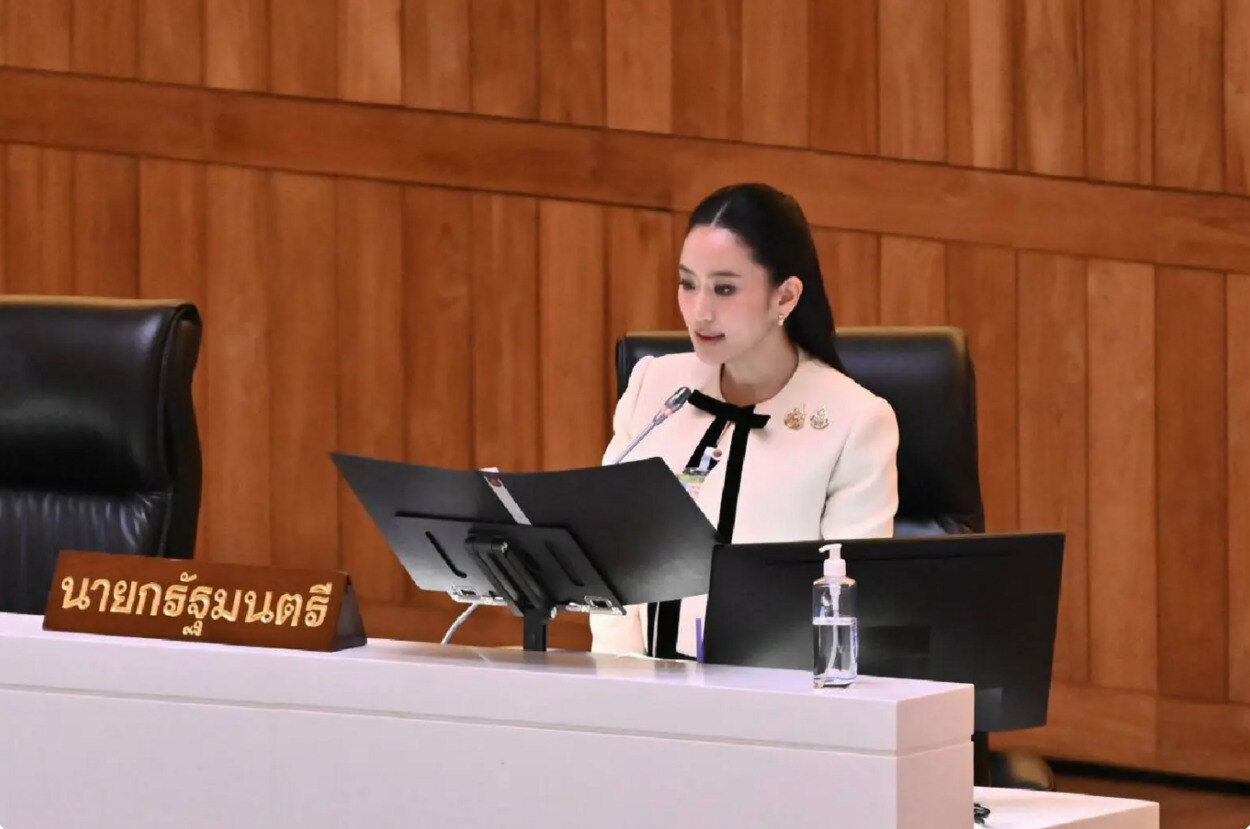On 28 May 2025, Prime Minister Paetongtarn Shinawatra presented Thailand’s proposed national budget for fiscal year 2026 to the House of Representatives, outlining government plans to spend 3.78 trillion baht in an effort to bolster economic stability, infrastructure, and social welfare amid persistent global and domestic pressures.
The draft budget bill for FY2026 anticipates a fiscal deficit of 860 billion baht, reflecting the government’s continued reliance on expansionary fiscal policy to address structural economic challenges and support recovery efforts. The projected revenue stands at 3.06 trillion baht, a 1.3% increase over the previous year. After mandated transfers to local administrations under the decentralization framework, the net revenue available for central government spending is estimated at 2.92 trillion baht.
Spending is divided into several categories. Regular expenditure accounts for 2.65 trillion baht, while investment spending totals 864 billion baht. Additionally, 123.5 billion baht is earmarked for reimbursing the treasury reserve, and 151.2 billion baht is designated for loan repayments.
The largest portion of the budget—943 billion baht—is allocated to initiatives aimed at promoting social equity. This includes funding for public health services, rural development, education, and support for disadvantaged communities, along with financing for local government functions. Human resource development and public sector reform are allocated 605.9 billion baht and 605.4 billion baht, respectively, while 394.6 billion baht is set aside to enhance national competitiveness. Security-related spending amounts to 415.3 billion baht, and 147.2 billion baht is dedicated to environmental initiatives and green growth.
These allocations are underpinned by economic projections from the National Economic and Social Development Council, which forecasts GDP growth between 2.3% and 3.3% in both 2025 and 2026. Key growth drivers are expected to include domestic consumption, a rebound in tourism, and increased private investment. However, the council has flagged ongoing risks, including elevated debt burdens, geopolitical uncertainty, trade protectionism, and climate change.
Inflation for 2026 is projected to remain within a range of 0.5% to 1.5%, while the current account is expected to show a surplus of 2.3% of GDP. As of March 2025, Thailand’s public debt stood at 64.4% of GDP, staying within the statutory ceiling of 70%. The government maintains that debt management will continue to adhere to fiscal discipline standards.
To support economic conditions, the Bank of Thailand recently reduced its policy interest rate to 1.75%. Foreign exchange reserves remained stable, closing at 237 billion US dollars at the end of 2024, reflecting the country’s ongoing financial resilience.
The budget announcement was made in parliament with attendance from key cabinet members, lawmakers, and officials involved in fiscal planning and economic policy.




